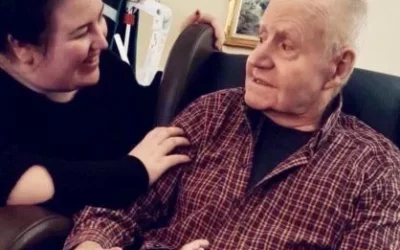It is common knowledge that regular exercise is important for general health and well being. Exercise can improve mood and decrease feelings of depression, anxiety and stress among other benefits. However, for people with Dementia exercise can become increasingly difficult as the condition progresses.
Walking, gardening and dancing are a great way to stay active for people with Dementia. These activities can also provide an opportunity for social interaction by joining a local walking, gardening or dance club, such as Blue Bell Garden Club in Huddersfield. Regular attendance at clubs such as these can give your loved one something to look forward to and talk about.
Gardening at home allows people to get fresh air and relaxation while staying in a place that is familiar to them. If your loved one has always been passionate about horticulture, gardening can help bring back happy memories, and it is something you can do together. Tending to indoor plants can also bring pleasure as well as providing a routine and something for them to do independently.

Dancing can also be great. Music is known to be a wonderful trigger for the memory and in our recent blog we discuss the other benefits that music can have for those with Dementia.
One of our Clients who has Dementia enjoys attending Aqua Med in Huddersfield accompanied by her Carer, Summer. This is an activity they both look forward to each week. Another Client has attended chair-based Zumba classes organised by taLk Active in Holmfirth which provide a great way to participate in some low impact exercise whilst listening to favourite childhood songs.
As Dementia progresses mobility and physical activity often becomes more difficult. However, there are exercises which can be performed sitting down, or with little physical exertion. For example, encouraging your loved one to march on the spot or practice getting up from a chair, both of which improve balance and strengthen muscles. Painting and drawing, though more mental exercise, are fantastic ways to provide stimulation and allow a loved one to communicate feelings and emotions that they may not be able to otherwise express through words. Simple activities, as long as done safely and without discomfort, can make a significant difference both physically and emotionally.
Even during the early stages of the condition, we advise people to work with a doctor, care professional or physiotherapist who can assist with preparing an exercise plan which fits in with their abilities and routines.
If you would like further information on how The Care Collection supports people with Dementia please get in touch.



0 Comments